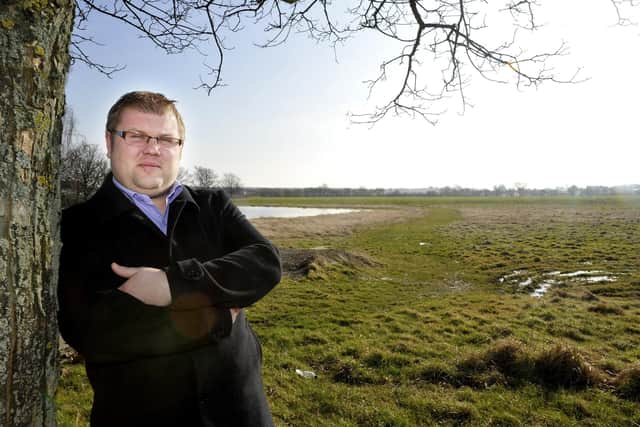Northumberland Labour hit back at claims of poor financial management
and live on Freeview channel 276
Speaking at last week’s meeting of the Tynedale Local Area Committee, Cllr Richard Wearmouth took aim at Labour’s previous economic policy that saw the council purchase commercial properties via its arms-length development company Arch, such as the Manor Walks shopping centre in Cramlington.
Northumberland County Council’s deputy leader was responding to concerns raised by Green councillor Nick Morphet over the local authority’s ongoing use of its reserves.
Advertisement
Hide AdAdvertisement
Hide AdNow, Labour leader Coun Scott Dickinson has criticised the Conservative-led administration for its handling of the council’s reserve fund.


Cllr Dickinson said: “We delivered while also balancing the books despite over £100m in revenue cuts from Conservative central government. We left office with a strong reserve placing in excess of £199m in the reserve pot, nearly doubling during our term – only for it to be blown away by the Conservatives over the last seven years.
“LGA Conservative Peer Reviewers and others have consistently commented on strong financial management of the previous Labour administration, on its vision, delivery and strong finances.
“Over recent months and years, we’ve seen financial mismanagement on political preference rather than Northumberland need. Now we see the reserves falling, services being cut to the bone and millions spent on internal squabbles rather than delivering for Northumberland.”
Advertisement
Hide AdAdvertisement
Hide AdTotal reserves at the council fell from £339.4 million in 2016/17 – the year the Labour administration was voted out – to £285.3 million at the end of March 2023. According to last year’s budget documents, it was estimated to fall to £250.3 million by the end of March this year.
In terms of so-called usable reserves or general reserves – extra money that is not allocated and is available for day-to-day spend, there was £199 million in 2017, which has now fallen to £44 million.
Cllr Wearmouth defended his administration’s record and pointed out the council had embarked on an ambitious capital programme since 2017.
He said: “The council is in a very strong position financially in spite of Labour’s actions when they were last in power.
Advertisement
Hide AdAdvertisement
Hide Ad“In case anyone has forgotten, between 2013-2017 Labour set Arch off on a huge spendings spree, buying things like Manor Walks shopping centre for £120m which has roughly halved in value. Labour’s last budget in 2017 set aside £450m or so of additional spending on similar acquisitions.
“The Conservative administration stopped all that nonsense dead in its tracks and put in place an investment programme which has attracted over £300m of match funding from government. That match funding has been for projects like the Northumberland Line; the Heritage Action Zone in Hexham; the Ashington and Blyth Town deals, the borderlands growth deal; the Blyth Relief Road; cycle routes between our major towns; high school rebuilds in Ponteland, Hexham, Seaton Valley, Amble and Berwick, and a whole host of other schemes.
“It is quite correct reserves have reduced to ensure we could attract that huge level of investment whilst also preserving front line services. Within the next three years the council will return to a position of building modest reserves having made these major capital investments that have set our county on a path to thrive.”
Cllr Wearmouth also referenced the fact that, under the previous Labour administration, the council almost loaned a property developer £34 million. Discussions reached an ‘advanced stage’ before being halted, while a report presented to the council’s audit committee in January 2020 said this would have been likely to represent a ‘serious financial risk to public finances’.
Advertisement
Hide AdAdvertisement
Hide AdAt the time, Labour said the report had exposed “weaknesses” in the system which had been addressed.
It should be noted that the first Borderlands Initiative summit took place in 2014, after the scheme’s launch in 2013. Studies looking at the best options for the Northumberland Line were carried out in 2014 and 2015.